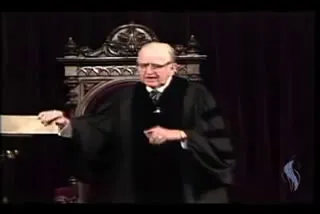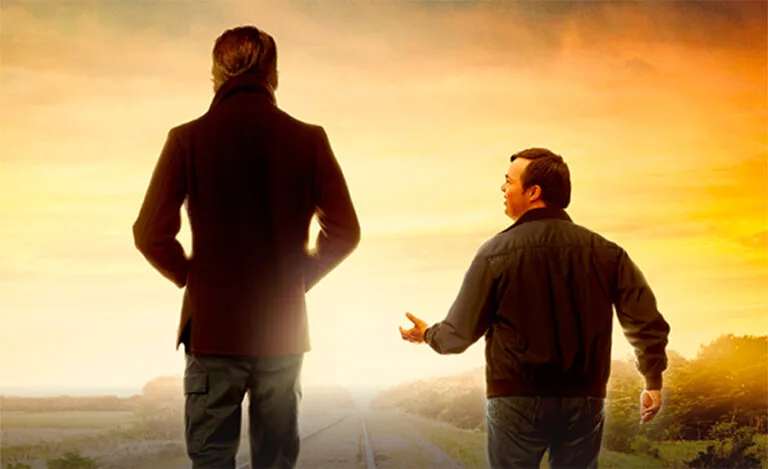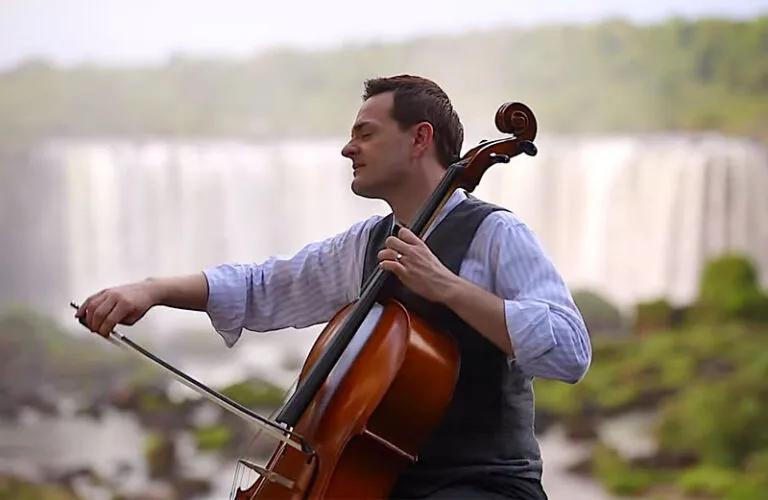
Tags
A Tuskegee Airman’s Inspiring Story
“Red Tails,” a film about the Tuskegee Airmen, opens this weekend. Watch as Sam Henderson, a real-life member of that pioneering group of men, tells his inspiring story.
View Transcript
I was born February 1 in 1921. So by this February, I’ll be 88 years of age. And I’ve been living in New York all of my life.
The Tuskegee Airmen was the first black Air Force units out. There were no blacks in the Air Force. And a lot of activists and the black newspapers were pushing and saying, why aren’t any blacks in the Air Force? So that’s how it started.
It started at a place called Chanute Field in Rantoul, Illinois. I went to college down in State Teachers College in Montgomery, Alabama. It’s called Alabama State University. But I got into trouble just when I went to town. I almost got myself lynched twice.
One semester, I came home– and Alabama was the second worst state in the union for blacks in those days, Mississippi was number one– and my mother told me not to go to Alabama. But I didn’t listen. I should have. I always listened to her before. But I thought I was grown.
Anyway, I came home. And I was going to go to City College. But then when the war broke out, and I was afraid of getting drafted. And in those days, the only place they put blacks were in the infantry, the engineers, which is like building roads, and the quartermaster, which is like for supplies. But then I heard about this black organization pushing for an Air Force unit.
I ran down to 39 Whitehall Street, and I volunteered to go into the Air Force. And they thought I would get there. They sent me to Camp Upton on Long Island for my basic training. And after a couple of weeks, they put us on a train.
So I thought I was going to Rantoul, Illinois. They never told you where you were going in those days, because they said loose lips sink ships. So they put you on something and they told you when you got halfway there, if they told you at all.
They didn’t tell us. And when I got off the train, where was I? At Cheaha, Alabama, which is the railroad station. I said I’m back in Alabama again.
Anyway, I thought I’d go to the airfield. It wouldn’t be too bad an airfield. Well, segregation was the law of the land in those days. It wasn’t illegal.
And so on the airfield, 85% of the personnel were black. But if you didn’t want to eat in the regular mess hall and you went to the post exchange, which was right there on the field, to eat, that was segregated.
So naturally, the black side was always packed tight. And on the white side, it were beautiful. So you had to deal with it. That’s the facts of life. So after a while, you get used to it.
When we came back from overseas, they gave us two weeks vacation. And then we got on a train. And when we got to Washington, the conductor told us that we couldn’t sit in the car. There were just two white soldiers. They were sleeping.
So he said you’ve got to go to the next car. I looked in the next car, it was packed full of black soldiers. They were like sardines. So we ignored him, and we sat there.
So he came back and he said, I told you that you can’t sit in this car. So my friend said, well, if you come back one more time, I’m going to blow your brains out. And we rode in comfort all the way down till we got to the place where you had to get off the train. And then we ran to the next car, because we thought he may have the police waiting for us.
Here we are in uniform. We got set up with the same foolishness. I said I could not believe it. Isn’t that something? I could not believe it. I said the same old junk that we left here.
Anyway, we rode in comfort. He didn’t come back. I said, good gosh. That’s unbelievable.
I’m saying that, but it made us so close together. I say everybody was buddy-buddy. It wasn’t strictly officers, enlisted men only. They didn’t have that kind of thing.
It was wonderful. And I said we were blessed in that we had an excellent commanding officer, Colonel Benjamin Oliver Davis Junior. He was fabulous in that he was strict, he was fair. But you didn’t mess up with him. That made the difference.
I found out. I was standing and waiting for my accessory to take me to my Bible study. And the fellow walked out, and he said, I saw on the “New York Times,” he said that the Tuskegee Airmen are invited to his inauguration. And I ran around looking for a “Times.” I could not find a “Times” anywhere. They were all gone.
So then two young ladies called me and said, the Tuskegee Airmen are going to be invited. Are you taking me? I said, invited where? They said you’re invited to the inauguration.
And then when I got to church that following Sunday, the priest announced it from the pulpit. I said, oh, my gosh. But it’s been a wonderful feeling for me. And I never thought that I would live, first of all, to see a black president– never in my life. I didn’t expect it.









